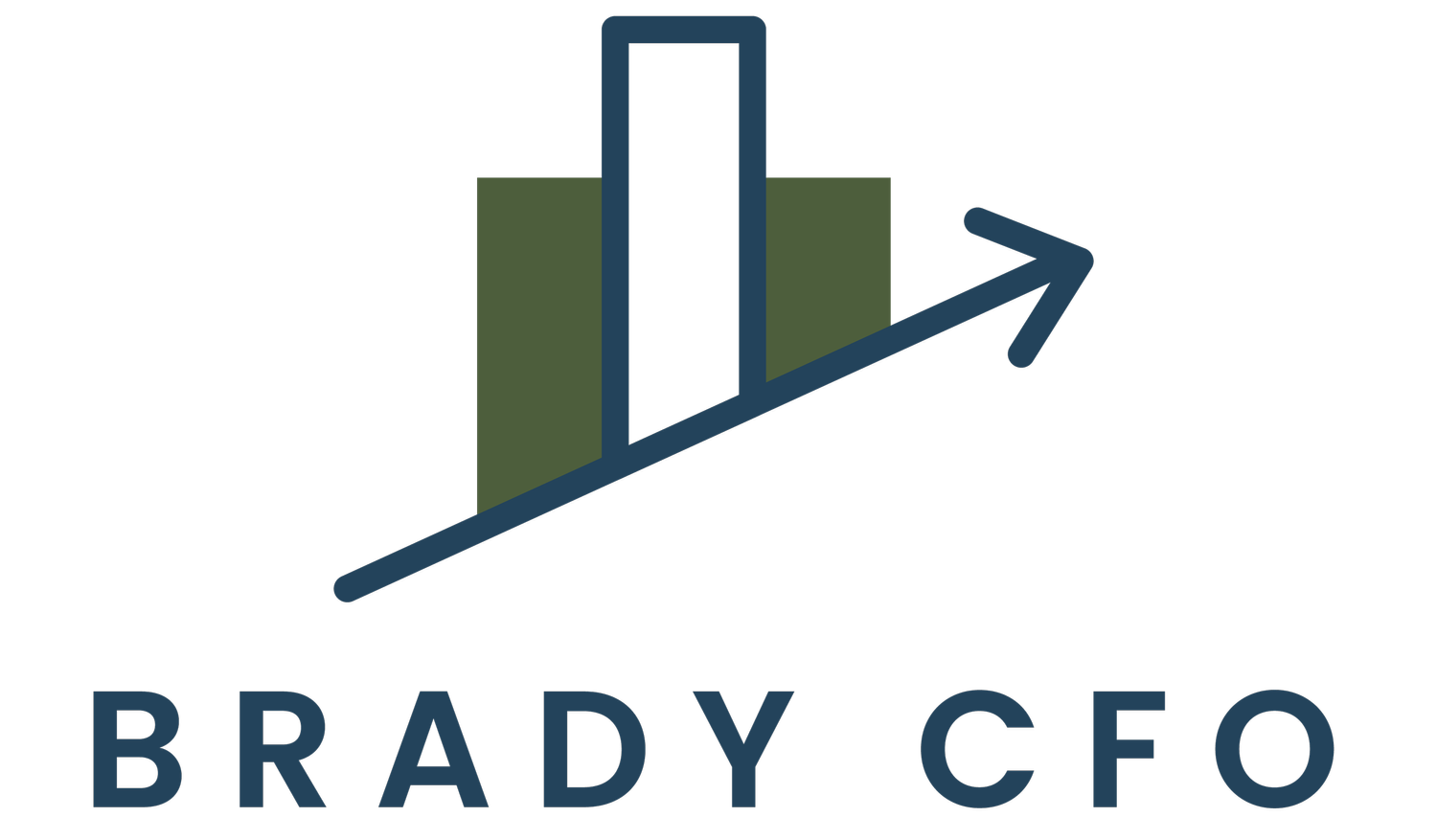What is the Difference Between a Controller and a CFO?
While small businesses don’t need a Controller, as every business grows, they need to fill two critical finance and accounting roles to be successful: Chief Financial Officer (CFO) and Controller. What is the difference between a Controller and a CFO? Good question. Keep reading as I break down Controller vs CFO duties and why your company needs both to do the most good.
What is the Difference Between a Controller and a CFO?
CFOs offer an intuitive ability to develop new business opportunities and strategic financial plans, which is invaluable for a company. However, it's all too easy to overlook the importance of a Controller. Without them, things just don't work as seamlessly as they should. Even a great CFO needs a good Controller on the team to do their job effectively.
So, what’s the difference between Controller and CFO positions?
What Does a CFO Do at a Company?
A CFO focuses on forecasting future performance. They consider how certain investments in staff, equipment, inventory, facilities, ventures, etc., might impact the company’s capabilities and make it more valuable.
For example, at Brady CFO, I conduct financial assessments to determine the most optimal strategy for financing future investments and growth. I work with a company's management team to coach and guide the next best financial decisions for their business.
What Does a Controller Do at a Company?
A Controller focuses on preparing financial reports that show the results of historical periods. For example, if it’s March 2023, and you want to understand how your business performed in February 2023, the Controller provides the necessary financial reports.
It is essential to understand the difference between Controller vs CFO duties and how they work together. You need to see historical results (provided by the Controller) to forecast and create a plan for a prosperous future (provided by the CFO).
When to Hire a Controller vs CFO?
Businesses that generate between $5-$15 million in annual revenue (depending on complexity) would benefit from hiring a full-time Controller to manage their accounting functions and team. Many businesses can suffice with a Senior Accountant or outsourcing bookkeeping up to $5-$10 million in annual revenue. However, once they have multiple team members handling accounting functions, having a Controller to manage it all becomes critical.
You’ll want to hire a full-time Controller before hiring a full-time CFO. However, a company could and should hire a Fractional CFO to support the business with a strong financial strategy in the meantime.
If your business generates $1-$30 million annually, Fractional CFO services from Brady CFO can provide financial vision to improve your accounting and finance functions, working alongside your full-time Controller.
How to Hire a Controller vs CFO?
What is the difference between a Controller and a CFO in terms of background and experience?
When looking to hire a Controller, consider these qualifications:
Bachelor’s or Master’s degree in Accounting
Potential certifications, such as a CPA or CMA (Certified Management Accountant)
5-10 years of experience in accounting functions
Technical capabilities to use ERP (Enterprise Resource Planning) and/or accounting software systems
A competent Controller paired with a qualified CFO is an effective combination for a business. Controllers can become CFOs, but the skills required in the Controller function often make up only a fraction of the necessary skills for the CFO role.
A fractional or full-time CFO should hold all the qualifications of a Controller, as well as these qualities:
Strategic planning capabilities
Leadership ability
Financial forecasting and modeling skills
Storytelling capabilities
Influence
Broad background experience in other functions besides finance/accounting
Controller vs CFO Duties in Daily Operations for Companies Generating $1-$30 Million Annually
At Brady CFO, I take a holistic approach to fractional CFO services because I believe a good CFO doesn’t just work in the accounting department. They must understand how a business operates and makes money and know the strategic vision for the company's future to make wise investment recommendations.
CFO Duties Include Strategic Business and Finance Leadership
As someone who has been in the trenches of starting a business and managing operations teams, I harness my passion for finance to bring a global perspective of business outside of just the accounting function to my clients. I don’t manage your accounting department, crunch numbers, and push papers–that’s a key difference between Controller and CFO positions. Instead, I offer innovative financial advice to move your business forward to achieve your desired financial goals and greater impact.
CFO Duties Include Relationship Building and Influence
A significant part of a CFO’s job is to convince creditors (banks) and potential investors the business is a viable investment strategy and will grow with strong margins in the future. As a Fractional CFO for backbone businesses in production, manufacturing, distribution, and more, I help improve revenues and margins and communicate your value proposition to secure acquisitions, loans, and the like.
CFO Duties Include Overseeing the Controller
The CFO manages the Controller and their team of financial analysts that perform FP&A (Financial Planning & Analysis) activities. The focus of this team is to analyze the results of the financial reports produced by the Controller and identify what changes can be made to improve operating performance. In addition, these analysts help the CFO forecast the future and enable the CFO to tell investors and creditors about how the business will grow.
Small to medium-sized businesses that generate $1-$30 million in annual revenue can maintain their operations with a Controller and fractional services from Brady CFO. Above this, the company needs to consider hiring a full-time CFO to provide daily, hands-on management of the accounting function.
Controller vs CFO: Which Position Do You Need to Fill?
The difference between Controller and CFO roles is vast, but most businesses, regardless of size, need both to succeed financially. As the founder of Brady CFO, I aim to help America’s small, family-owned, backbone businesses develop a strategic plan for the future.
Do you have a strong Controller on board to manage the accounting team and functions but need fresh eyes to look at your current financial situation and make recommendations to get you back on track with performance expectations? Then, let's get on a call to strategize the best next steps to build your legacy business on sustainable strategies for long-term growth.

